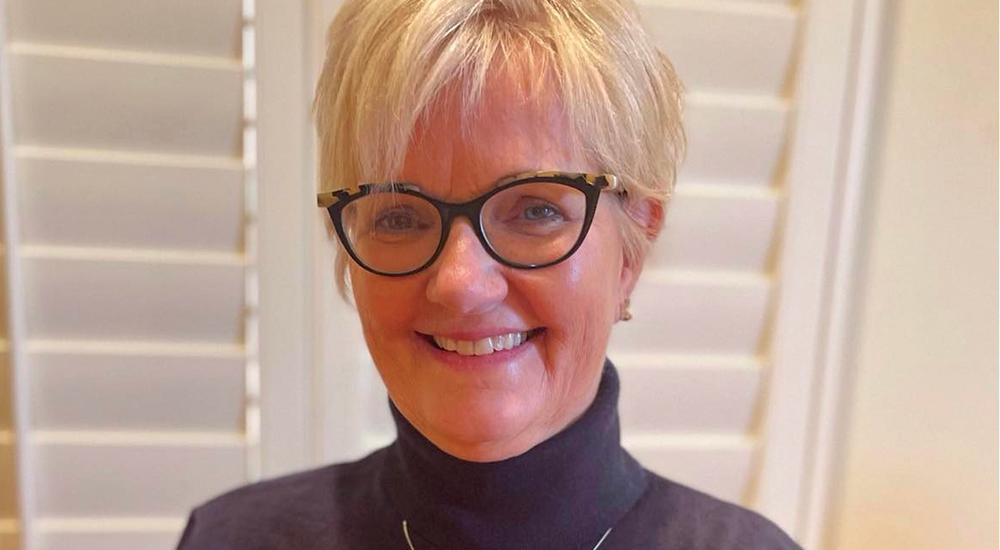Family members or loved ones of those that have brain health issues be aware that these brain health issues are no one’s fault and are nondiscriminatory. Like, any type of health problems, no one wants these conditions in their lives. They need love, hope, understanding, and support. The best way we can support our loved ones is by getting educated about these issues. Education provides knowledge, power, and saves lives.
The two programs that National Alliance of Mental Illness (NAMI) Dubuque offers include a Family-to-Family education class and a Family Support Group. The Family-to-Family program is a free, eight week session for family members, significant others, and friends of people with brain health issues. The program is evidenced based and is proven to help loved ones have better outcomes in managing their condition.
The NAMI Family Support Group is a peer-led support group for any adult with a loved one who has experienced symptoms of a mental health condition. It helps one to gain insight from the challenges and successes of others facing similar experiences.
Family-to-Family 8 Week Class
The NAMI Family-to-Family program is for family, significant others, and friends of people with mental health conditions. Research shows that the program significantly improves the coping and problem-solving abilities of the people closest to a person with a mental health condition.
NAMI Family-to-Family is taught by NAMI-trained family members who have been there, and includes presentations, discussions and interactive exercises. Registration is required for this program.
What You’ll Gain
NAMI Family-to-Family not only provides information and strategies for taking care of the person you love, but you’ll also find out that you’re not alone. Recovery is a journey, and there is hope.
The group setting of NAMI Family-to-Family provides mutual support and shared positive impact as you experience compassion and reinforcement from people who understand your situation. Sharing your own experience may help others in your class.
What You’ll Learn
- How to solve problems and communicate effectively
- Taking care of yourself and managing your stress
- Supporting your loved one with compassion
- Finding and using local supports and services
- Up-to-date information on mental health conditions and how they affect the brain
- How to handle a crisis
- Current treatments and therapies
- The impact of mental health conditions on the entire family
Family Support Group
The Family Support Group meets every first Tuesday of the month. Meetings are safe for groups of family members helping and supporting other family members, utilizing their learned wisdom and sharing this with others. This can provide a renewed sense of hope, just witnessing that there are others going through some of the same things is powerful.
NAMI’s support groups are unique because they follow a structured model, ensuring everyone has an opportunity to be heard and to get what they need.
They are free of cost to participants, and designed for adult loved ones of people with mental health conditions. Groups are led by family members of people with mental health conditions and last 60-90 minutes weekly. They meet every other week or monthly (varies by location). No specific medical therapy or treatment is endorsed and information is confidential.

What You’ll Gain
By sharing your experiences in a safe setting, you can gain hope and develop supportive relationships. This group allows your voice to be heard and provides an opportunity for your personal needs to be met. It encourages empathy, productive discussion and a sense of community. You’ll benefit from other’s experiences, discover your inner strength and empower yourself by sharing your own experiences in a non-judgmental space.
NAMI Family Support Group will help you:
- Aim for better coping skills
- Find strength in sharing experiences
- Not judge anyone’s pain
- Forgive ourselves and reject guilt
- Embrace humor as healthy
- Accept that we cannot solve every problem
“Recognize your emotions and give yourself permission to feel. The more we understand our own feelings during our time as caregivers the better we can develop our toolkit of coping skills and when to reach out for help,” said Britni Farber, Executive Ditector of NAMI Dubuque.
“You need to invest in yourself and take care of you to have energy left for others. Our NAMI support groups are built on the idea of true peer support as we become an alliance for one another,” Britni added.
“That is how NAMI started. We learn from sharing experiences and by setting long term goals to advocate for the health and welfare of ourselves and our loved ones. We laugh together, cry together, learn together and grow together. In these moments of time, we spend together, we become a network. I have made lifelong friends through NAMI Dubuque. We truly are a family.”
Family-to-family is starting November 7th. Interested participants can contact Barb Otting, barb@namidubuque.org.
NAMI is building more family support services in their new center and hope to be more comprehensive in care for our caregivers as they are the backbone of support for our peers and our children.
Mental Health America (MHA) recognizes November as National Family Caregivers Month – a time to celebrate the contributions of caregivers, provide them with tools that they need, and continue to advocate for individuals with mental illness.
Twenty-seven percent or nearly a third of adult caregivers are helping someone with a mental illness. Caregiving can often have a significant impact on the life of the caregiver in more ways than one. It can make maintaining your physical and mental health more difficult and may put a strain on work and social life.
It’s important for caregivers to take care of their own mental health. Supporting caregivers with information and resources can help them maintain their mental health and better serve loved ones with mental illness.
Editor’s note: This article was provided by Barb Otting, NAMI Director of Families, and Britni Farber, Executive Director of NAMI Dubuque.





Comment here